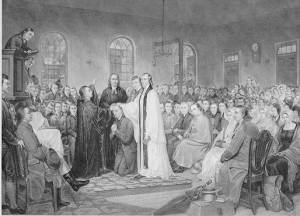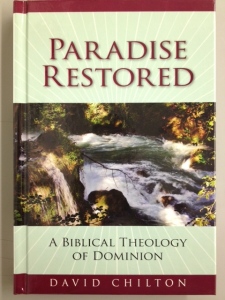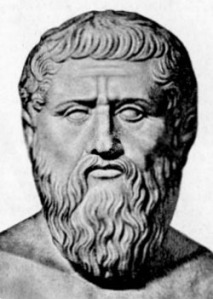
In 1979, Christian broadcaster Pat Robertson published what he called an “Action Plan for the 1980s.” It really was a detailed ‘call to action’ for Christians. It laid out in brief five fundamental economic, social and political problems that we faced as Americans and especially as Bible-believing Christians back then.
I regret to inform you that, with but one exception, those problems are still with us!
Some of the historical details set forth by Robertson have changed, of course — the fall of the Soviet Union on Christmas Day 1991 being the greatest example of these (hence, communism is no longer on the rise) — and certainly the dollar figures being discussed with regard to currency devaluation and federal government spending per capita have dramatically changed. (He laments that in 1979, it was $2,445 for every man, woman and child. Well, now that figure, adjusted for inflation, is up to $19,434!
As for currency devaluation with respect to the price of gold in 1979, Robertson remarks how the price had shot up to $380 per ounce in seven short years from $42 in 1972, when Nixon used his executive powers to finish what FDR started in 1933. Imagine what his astonishment must have been when he saw gold prices soaring past $1,900 (again) before his death in June 2023!
Anyway, I suppose we should be thankful that after a little more than four decades now, we are only faced with solving four of the five “Critical Problems America Must Face” that he called attention to.
One down. Four to go.
Here are the four remaining CRITICAL PROBLEMS:
- Inflation
- Currency Devaluation
- Productivity
- Government
Guess which two you and I have some actual ability to effect change in?
You got it!
Well, Rev. Robertson (he was an ordained Southern Baptist minister) did not just state the problems without also offering targeted solutions for them.
By targeted, I mean those whom he says should be the ones implementing these.
Let me give you a hint as to who that should be…
6 STEPS TO MORAL, ECONOMIC AND POLITICAL RECOVERY
Let me give you another hint… Actually, let me give you six of them:
- There must be a profound moral revival in the land.
- Those who love God must get involved in the election of strong leaders.
- In a moral sense, we must recognize our right to preserve our precious religious heritage.
- Christians must take action in education.
- Christians must become aware of the awesome power of the media to mold our moral and political consensus.
- Christians should seek positions of leadership in major corporations and benevolent foundations.
Get the hints?
These are more than “hints.” They are blueprints. Proposed blueprints for a major project of … wait for it … Christian reconstruction.
Or, as he calls it, a “plan of action.”
And what does Robertson say are the keys to our success in this critical undertaking?
FAITH and DILIGENCE
After all, he reminds us, how did the Communists, espousing a false religion, manage to dominate so much of the world in 60 short years?
They were dedicated to their cause, and they worked at it.
That, by the way, is another hint.
In so many words, he is saying, “Go, and do thou likewise.”
And lest we be disheartened by the daunting scope of this most intimidating task at hand, Rev. Robertson also reminds us,
“The kingdoms of this world are become the kingdoms of our Lord, and of His Christ; and He shall reign for ever and ever.”
Rev. 11:15
Dr. Gary North reprinted Pat Robertson’s Christian Action Plan for the 1980s in the Dec. 1979/Jan. 1980 issue of his ICE (Institute for Christian Economics) newsletter, “Biblical Economics Today.”
I am reprinting it here in its entirety as it was originally published by Dr. North in print in 1979, and online on his website in 2014.
I strongly encourage you to read this action plan carefully, take it to heart, pray about it, and consider looking at ways you can begin to implement some of its long-term strategy.
And it is a long-term strategy.
As Rev. Robertson says,
Except for our Lord’s return, we cannot expect our nation or our world to be freed from tyranny in one year or even 10 years. But if we are faithful and diligent, with His blessing, it will be done.
As a postmillennialist filled with certainty and hope for the future of our nation and of our world, I say, Amen to that.
************************************
Retrospective: A Christian Action Plan For The 1980’s
Pat Robertson
October, 1979 marks the 50th anniversary of the Great Depression of 1929–an event which did more to shape the existing framework of U.S. government policy than any other single event in recent history. Out of the Depression came a powerful central government; an imperial presidency; the enormous political power of newspapers, radio, and later television; an anti-business bias in the country, powerful unions; a complexity of federal regulations and agencies designed to control and, in many instances, protect powerful vested interests; and, more importantly, the belief in the economic policy of British scholar John Maynard Keynes, to the end that government spending and government “fine tuning” would guarantee perpetual prosperity.
New Deal Keynesian policies did reverse the economic tragedy of the Depression (with the help of World War II). But many now feel that the “cure” of the ’30’s is the cause of the sickness of the ’70’s. In fact, many knowledgeable observers are contending that forces unleashed in the post-Depression days have so weakened Western civilization, and the United States in particular, that a radical change is on the way. Some feel that 1979 may be the watershed year for the Western nations as we now know them.
5 CRITICAL PROBLEMS AMERICA MUST FACE NOW
As we enter the next decade, here are some of the inherited problems which must be dealt with:
(1) Inflation.
Deficit spending by the federal government, which seemed so appropriate in the Depression and later during World War II, has seized us like a massive narcotic addiction. Presidents Johnson, Nixon, Ford, and Carter could not resist the temptation of the “quick fix.” For 10 years the economy has been on the same cycle: spending, election, monetary contraction, recession, spending, election, etc. During this time the government has printed vast sums of money, thus ensuring both economic turmoil and the consequent rise in prices. As a result the savings of the thrifty have been cut in half, many of the elderly have been beggared, and the Social Security system is approaching bankruptcy. Reckless borrowers gain and the cautious lose. Public and private debt has risen into the trillions. Government has grown so that the load of non-productive governmental interference in the life of every citizen has become insupportable.
(2) Currency devaluation.
As a Depression measure, President Roosevelt took us off the gold standard and made private ownership of gold illegal. President Nixon completed the action when he removed all monetary backing to the dollar and let it float against all other currencies of the world. When Nixon made his move in 1972, the price of gold was $42 per ounce. In September, 1979, the world price of gold topped $380 per ounce and undoubtedly it will go higher. It could also be said that gold as a commodity has gone up in price in seven years. It could also be said that the world now regards the U.S. dollar as worth 1/9 of its 1972 value!
Indeed, in 1919 the dollar is regarded as only about half as valuable against the German merit, the Swiss franc, and the Japanese yen as it was in 1972.
During the last century, the British pound sterling was the reserve currency of the world. It was backed by gold, which was in turn backed by a stable, prosperous empire. In the 1920’s Britain removed the backing from its currency. Consequently, one cause of the U.S. Depression was wild speculation brought on by artificially low interest rates in this country, which our Federal Reserve Board permitted in order to protect the then-weak British pound. When the pound fell as a reserve currency, it was every nation for itself. A wave of protective tariffs set in, turning a financial crash into a worldwide disaster.
After World War II, the U.S. dollar became the reserve currency of the world. The dollar was “as good as gold,” and became for other nations a store of value. The policies of the Johnson, Nixon, and Carter administrations have deliberately destroyed the value of the dollar. Now, instead of currency convertibility and free trade, it becomes again every nation for itself. How do nations protect their dollar reserves, dump unwanted dollars, and protect their own currencies? Once again there is talk of trade wars, tariffs, and other protectionist devices.
Further complicating international finance is the OPEC oil cartel. Oil is priced in terms of dollars. U.S. inflation causes the dollar to drop in value. Whenever this happens, OPEC raises the price of oil to compensate. This causes further in?ation and further dollar decline–then another round of a vicious cycle from which we seem unable or unwilling to extricate ourselves.
(3) Productivity.
The Depression caused market demand to plummet. Prices crashed along with the stock market. Farm surpluses caused untold misery in America’s breadbasket. The New Deal answer was to limit production and competition, kill the little pigs, take acreage out of cultivation, and then stimulate demand by massive government spending. In the ’30’s, it worked.
Now in the ’70’s, a bewildering array of New Deal legislation, coupled with the Great Society programs of Lyndon Johnson, coupled with rigid environmental regulations, has helped shrink U.S. productivity to record lows.
More serious is the liquidation of our major industries enforced by in?ation. Here is how it works. A business desires to show profits to its lenders and stockholders. In order to do this, it allows its capital plan to be depreciated at what it cost 10 or 15 years ago, rather than what it would cost now or in the future. If replacement value depreciation were used, many “profitable” businesses would show substantial losses. Their book “profits” are illusory; nevertheless the businesses pay taxes and dividends on them.
Unfortunately, when replacement time comes, the available funds are vastly inadequate to buy modern equipment and factories. So the business, as in the case of United States Steel Corp., closes the old plants and shrinks its output.
Unless something is done very soon by government, big business, and the financial community to recognize the realities of inflation and to make provision for the enormous sums required to modernize our heavy industry, in the 1980’s we will discover that our steel, machinery, and automotive industries have shrunk to the point where they can no longer compete at home or overseas.
As industries close, the government is forced into additional inflationary spending to care for displaced workers. As productivity drops and government spending accelerates, the pace of inflation speeds up–which in turn further aggravates the plight of industry, which causes a further increase in our trade deficit, causing the dollar to decline again. Dollar decline means we pay more for imported goods and thereby have more domestic inflation.
The cause-and-effect cycle of inflation and industry decline is relatively easy to follow. It is also easy to understand why the “new breed” of economic conservatives is stressing anti-Keynesian policies of stimulating production and supply while balancing the federal budget to cool the ruinously inflationary demand side of the economic equation.
(4) Government.
Until the Depression, the federal government operated largely in keeping with the philosophy attributed to Thomas Jefferson: “That government is best which governs least.”
The anguish of the Depression changed all that. Emergency legislation proposed by President Roosevelt was railroaded through Congress with scarcely a murmur of objection. The Supreme Court objected on the grounds that the Constitution never gave the federal government such power over individual citizens, nor could Congress delegate so much of its authority to the chief executive.
How, for example, could the federal government under our Constitution force a farmer in Iowa to limit his planting of corn and make him kill his little pigs? The Supreme Court struck down item after item of New Deal legislation as unconstitutional. But in effect, Roosevelt said: Either approve my laws and regulations, or I will get Congress to expand the number of justices on the Court and then I will “pack” it with people who will do what I want.
This was dictatorship–but Roosevelt had the votes in Congress, so the Court backed down. They suddenly discovered that the little pigs in Iowa were a factor in “interstate commerce.” Since the federal government had constitutional authority to regulate “commerce,” it could limit the output of little pigs in Iowa if it wanted to. And it could, in decades to come, control how many channels were on TV sets, who could eat in a restaurant, the working conditions in every business, how many acres a farmer could plant, what wages would be paid to whom. Once the dam was broken, it became hard to conceive of many human endeavors outside of the reach of the federal government.
In fact, under activist presidents, Courts and Congresses, the Commerce Clause and the 14th Amendment have become the vehicles whereby government and its regulations have become the dominant factor in our society today. Federal spending amounts to $2,445 this year for every man, woman, and child in the land, and government debt amounts to $3,998 for each. The load on the family of four will be $9,780 in federal spending this fiscal year, and $15,992 in long-term debt, not including Social Security, Civil Service, and other retirement obligations plus collateral guarantees of federal agencies.
(5) Rise of Communism.
The Depression idled nearly one of every four workers in America. Businesses failed, banks collapsed, farmers and home owners were evicted from their property, and the life savings of millions vanished. Financial losses triggered the more serious loss or human dignity and purpose.
With the misery came revelations of abuses and scandals, stock manipulations by leading banks, blatant greed and corruption on the part of some of the most respected financial leaders of the day, and massive deception by Wall Street and government leaders.
Sensitive young intellectuals–men like Alger Hiss–became convinced that our system was wrong. Longing for a utopian society to replace it, they became easy targets for the Communist party and Communist fronts throughout the country. Many of these men and women played a key policy role in education, journalism, religion, labor, foundations, business, and government. They forced a pro-Soviet tilt to U.S. government policy during World War II and in the postwar years.
It is fair to say that the United States created a world favorable to the growth of the Soviet Union and world communism. We gave them money, technology, and trade agreements. We allowed them to subjugate Poland, Czechoslovakia, Hungary, Rumania, Estonia, Latvia, Lithuania, Albania, and Manchuria. We permitted a divided Germany and a split Berlin. We established a United Nations charter drafted by Alger Hiss, a reputed Communist party member, which guaranteed the Soviets a veto in the United Nations Security Council.
Our postwar international monetary policy was largely the creation oi Harry Dexter White, another reputed Communist party member. And pro-Communist spies in both the United States and Great Britain gave the Soviets access to virtually all of our highly classified nuclear and defense secrets.
Before the Depression, the Bolsheviks were a slightly ludicrous group of fanatics who held dictatorial power in a poverty-stricken land that was still a part of the Middle Ages. Fifty years later, with our help, they have subjugated one quarter of all the people on earth, and have amassed a war machine that is not equal to but vastly superior to the military capability of the United States and its NATO allies combined.
By1981, the Soviet Union will have such undisputed dominance over the United States that it will be able to move at will against any territory on earth.
This would never have been possible had it not been for the Depression-inspired flirtation with Marxism on the part of the U.S. intellectual community–which, unfortunately, in some quarters still continues to this day.
6 STEPS TO MORAL, POLITICAL, AND ECONOMIC RECOVERY
As 1979 draws to a close, we are left with a 50-year legacy which should cause alarm. Our domestic strength has been weakened by government excesses and mismanagement; our capacity for national sacrifice and resolute action may have been reduced to a level of ineffectiveness; vital raw materials necessary to our economic and military survival are in the hands of others; and we are confronted by a powerful adversary with both the capability and the desire to destroy us.
We urgently need two things. First, that God will hold our external enemies at bay while confusing their counsels against us. Second, we need a bold, dynamic plan baled on practical reality which will permit our nation to turn around and begin the slow road to moral, political, and economic recovery.
A national strategy for the ’80’s must be formulated. Each individual needs a similar plan. Here are some suggestions intended to stimulate thought.
(1) There must be a profound moral revival in the land.
Not only increased evangelism; not a glib confession of faith, but a profound commitment to Jesus Christ and biblical Christianity. There must be true repentance, fasting, prayer, and calling upon God. The “people who are called by His name” need to beseech God with all humility on behalf of our nation and our world. A miracle is needed and we must ask for one.
(2) Those who love God must get involved in the election of strong leaders.
Men and women of God across the land must join together to ensure the election of strong leaders who are beholden to no special interest group; who are pledged to reduce the size of government, eliminate federal deficits, free our productive capacity, ensure sound currency; who are pledged to strong national defense, and do not confuse peace with surrender; who recognize the anti-Christ nature oi Marxism and will refuse to permit innocent people to fail victim to Marxist tyranny; who support programs which encourage godliness while resisting programs which result in the triumph of humanism and atheism in our land.
More than anything we need leaders who are not afraid to demand necessary sacrifices of our people in order to free us from bondage–whether it comes from the OPEC cartel, from crushing debt, from nuclear blackmail, or from the poverty and helplessness oi a portion of our people.
To accomplish this takes work. Christians must register to vote, work within parties, attend caucuses, mass meetings, and conventions. They need to be informed on Issues and know what each candidate stands for. They must be willing to hold public office and, where appropriate, should prepare for government service. They must be willing to write letters, make telephone calls, lobby for legislation, and pray for their leaders. In short, they must be good citizens. In the Book of Proverbs we read, “The diligent will bear rule, but the slothful will be put to forced labor.” If Christians want to rule, they must be diligent. There is no magic shortcut.
(3) In a moral sense, we must recognize our right to preserve our precious religious heritage.
Supreme Court decisions are not holy writ. The damage to our spiritual and moral heritage that has been brought on by the Supreme Court school prayer decisions is beyond calculation. President Roosevelt did not hesitate to use power to force the Supreme Court to acquiesce to New Deal legislation. Christians should not hesitate to use the lawful power at their disposal to secure reversal of onerous Supreme Court decisions.
(4) Christians must take action in education.
The courts and ill-advised federal regulations have often made a mockery of education. Eliminating prayer removed moral restraints; busing tends to remove neighborhood restraints. Many schools have become undisciplined jungles.
Textbooks used in public schools often tend to destroy long-established moral values. Parents have every right to insist on quality moral education for their children. They should fight for it In public schools, and If good public education is denied them, they must do everything possible to establish an alternative private system of education where Christian values can be taught.
(5) Christians must become aware of the awesome power of the media to mold our moral and political consensus.
Christians need to do everything in their power to get involved in media (radio, television, newspapers, magazines). Where possible, Christians should seek to establish or purchase newspapers, magazines, radio stations, and television stations.
Christians should learn motion picture techniques, produce drama, write music, publish books–anything to produce a climate of righteousness and godliness. They must dispel the sense of nihilism and lack of meaning that is so evident in much that passes for art these days.
(6) Christians should seek positions of leadership in major corporations and benevolent foundations.
It has been said that money is the “mother’s milk” of politics. It also is the essential nourishment of education, entrance into media, the arts, and wide-scale evangelism. Christians should learn the ways of finance: stocks, bonds, banking, commodities, real estate, taxes. More than anything, they should learn and apply the principles of God’s kingdom dealing with the acquisition and use of wealth. When they have accumulated material resources, they should recognize the enormous good they can accomplish with that wealth in unity with other members of the body of Christ throughout the world.
THE KEYS TO SUCCESS: FAITH AND DILIGENCE
The Communists, who espouse a false religion, now dominate the world after only 60 years. The reason is simple–they were dedicated to their cause and they worked at it. Except for our Lord’s return, we cannot expect our nation or our world to be treed from tyranny in one year or even 10 years. But if we are faithful and diligent, with His blessing, it will be done. “The kingdoms of this world are become the kingdoms of our Lord, and of His Christ; and He shall reign for ever and ever.” (Rev. 11:15)
*****************************************
Read this article as published on Gary North’s website by clicking here.
Read a PDF of the original ICE newsletter by clicking here.
Now, let’s get busy!
 By P. Andrew Sandlin
By P. Andrew Sandlin







